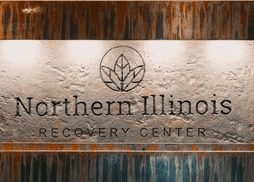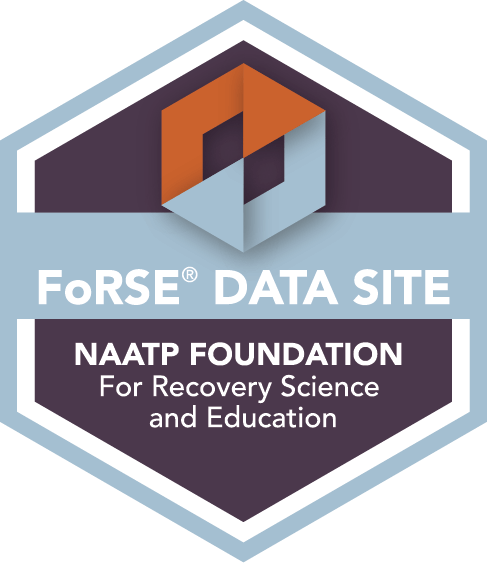Benzodiazepine addiction treatment is a necessary step for many individuals struggling with the misuse and abuse of these drugs. Benzodiazepines are sedatives and hypnotics that are widely prescribed to treat anxiety, insomnia, panic disorder, and seizures.
While these medications can be beneficial when taken as prescribed, they have the potential for misuse and abuse due to their sedative effects. It is crucial to understand the risks associated with benzodiazepines and how to receive addiction treatment.
If you or a loved one is struggling to control addictive urges, our addiction treatment programs in Illinois can help. We want to provide you with the care you deserve.
- Sedation and hypnosis,
- Relaxed mood,
- Relief from symptoms of anxiety disorder
- Reduced seizures
The most common drugs in this class are
- Valium
- Xanax
- Halcion
- Ativan
- Klonopin
How Do Benzodiazepines Work?
When you take a benzodiazepine, it tells your brain to release a neurotransmitter that makes your CNS less active. The slowed activity can cause the following effects:
- Amnestic: Benzodiazepines block the formation of new memories
- Anxiolytic: Relieves anxiety
- Sedative: Calms the nervous system
- Hypnotic: Induces sleep
Dangers of Misusing Benzodiazepines
- Slurred speech
- Impaired coordination
- Dizziness
- Vertigo
- Blurred vision
- Mood swings
- Unpredictable/hostile behavior
Several months of use can substantially increase the risk for addiction, tolerance, and the experience of withdrawal symptoms when the medication dose is reduced or ended. Individuals with a history of drug abuse must be more careful, as they have the highest risk of addiction.

What are Some Signs of Benzodiazepine Addiction?
- Problems sleeping
- Nausea and vomiting
- Diarrhea
- Goosebumps
- Unmanageable leg movements
- Memory issues
- Changes in behavior (such as increased risky behaviors)
- Delirium (this occurs mostly in older individuals)
- Withdrawal symptoms when reducing or stopping use
What are Some Signs of Benzodiazepine Addiction?
- Problems sleeping
- Nausea and vomiting
- Diarrhea
- Goosebumps
- Unmanageable leg movements
- Memory issues
- Changes in behavior (such as increased risky behaviors)
- Delirium (this occurs mostly in older individuals)
- Withdrawal symptoms when reducing or stopping use
Benzodiazepine Overdose
Treatment typically involves supportive care such as oxygen therapy and other interventions to help reverse the effects of the overdose.
Symptoms of benzodiazepine overdose include:
- Extreme drowsiness
- Slurred speech
- Confusion/impaired mental condition
- Loss of coordination
- Weakened reflexes
- Shallow, slow breathing rate
- Coma
- Death (when used with other respiratory depressants)
Insurance Verification





Benzodiazepine Addiction Treatment
Our benzo detox in Illinois uses a weaning process to ease withdrawal symptoms such as tremors and seizures. All benzodiazepines are habit-forming and may cause physical dependence. Eventually, that dependence can lead to difficult withdrawal symptoms if the individual decides to stop using them. If your addiction is moderate to severe, the place to start in treatment is probably with a medical detox. This eliminates the chemicals from your body and ends your physical dependence on the drug.
Our inpatient drug rehab in Illinois takes place in a safe, secure treatment facility. This is considered our highest level of care. Here, you can be free of the distractions and triggers that make you want to use and concentrate on your recovery. Individuals in residential care receive intense therapy and counseling to help rehabilitate body and mind. The length of time depends on your needs and requirements.
Partial Hospitalization Programs (PHP) are sometimes called Partial Care or Day Treatment. This level is the same as a residential program in intensity and services, except that you don’t live at the treatment facility. This type of outpatient program is appropriate for people who have stable, supportive housing, regardless of the severity of their addiction.
Our Intensive Outpatient Program (IOP) provides a high level of outpatient care. You may attend treatment sessions approximately 3 times per week for a few hours each visit. Many people with less severe addictions and a stable home life can recover in an IOP. For younger individuals, an adolescent IOP offers the same structured support but is tailored to the unique emotional, social, and developmental needs of teens, making it a practical option for families seeking effective treatment without full-time residential care.
A standard outpatient program is most appropriate for a person with a mild substance abuse problem and a supportive network of family and friends. Outpatient treatment usually includes one hour of treatment once or twice per week. It’s also great for continuing treatment after completing a higher level of care.
Sober living residences are immensely helpful for people who are not confident enough to return to their previous living situation. It’s an efficient way to transition into a productive, drug-free life.
Benzo Addiction Treatment FAQs
Treating chronic misuse or abuse of benzodiazepines can be accomplished with professional medical supervision. The first step is to be evaluated by a medical professional to see where you fall in the range of severity of your addiction.
When used as prescribed, benzodiazepines can relieve insomnia, treat panic disorders and depression, and reduce seizures. Doctors may also provide benzodiazepines for general anesthesia or alcohol withdrawal-related symptoms. If used as prescribed, these medications can be very safe and effective.
The duration of benzo withdrawal varies significantly from person to person, but acute symptoms typically last from a few weeks to several months. This timeline is influenced by factors such as the specific benzodiazepine used, the dosage, the duration of use, and individual physiology. For some individuals, a longer-term post-acute withdrawal syndrome (PAWS) with intermittent psychological symptoms can persist for many months, underscoring the need for a managed, long-term approach.
Long-term benzo use can lead to significant physical and cognitive effects, including memory impairment, emotional blunting, and increased risk of depression. Physically, prolonged use can cause dependence, tolerance, and potential damage to the central nervous system. These effects highlight why a carefully supervised medical detox and comprehensive treatment plan are crucial for individuals seeking to stop long-term benzodiazepine use.
The length of addiction treatment is not one-size-fits-all and depends on the individual’s specific needs, the severity of their addiction, and their progress in recovery. Treatment can range from a 30-day intensive inpatient program to several months or more in outpatient care, followed by long-term aftercare and support. A sustained commitment to treatment, often involving ongoing addiction therapy or support groups, is widely recognized as a key predictor of successful, long-term recovery.
Most private health insurance plans, as well as Medicaid, provide coverage for benzodiazepine addiction treatment, as it is considered an essential health benefit. The extent of coverage, including deductibles, co-pays, and the specific programs approved, will vary based on your individual policy and provider. Our admissions team is happy to help you understand your benefits. Contact us to verify your insurance.
Seek Treatment at Northern Illinois Recovery Center

Our treatment center in Crystal Lake is ready to provide you with the treatment necessary for a successful recovery. With our team of medical professionals and a vast array of rehab programs, we can create a treatment plan for each individual.
Contact us today if you or a loved one is interested in our treatment services. One call is all it takes to start on the path to healing.





